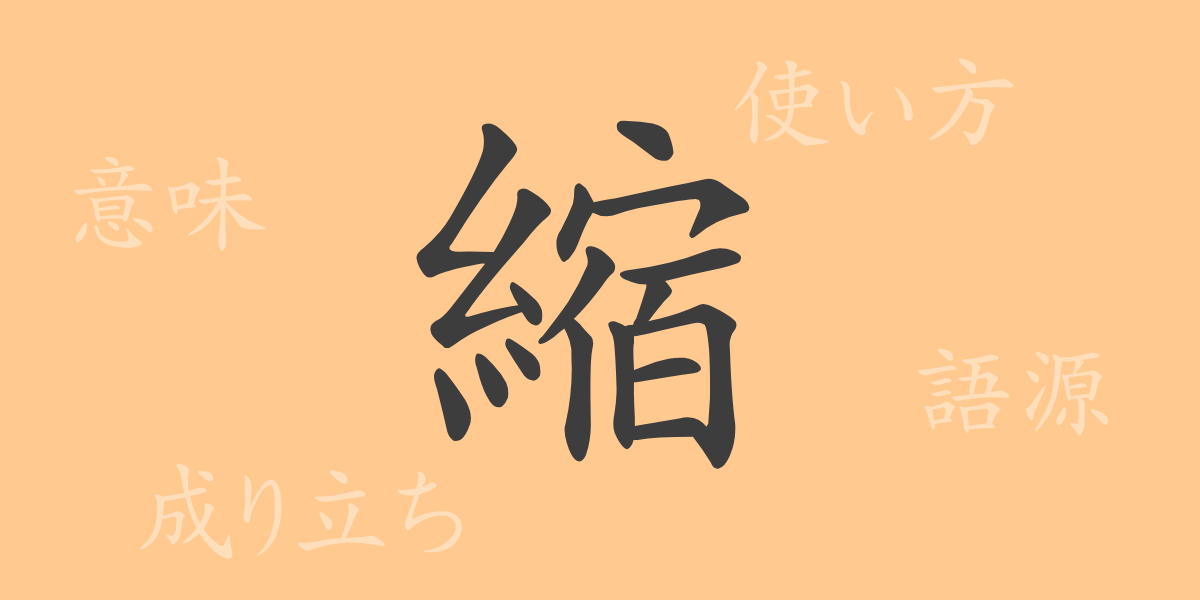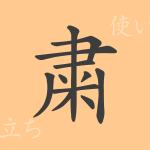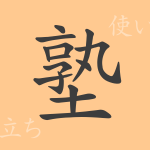There are thousands of kanji characters in the Japanese language, each with its unique history and meaning. “縮(しゅく, shuku)” is one of the common kanji used in Japan, appearing in various aspects of our daily lives. This article focuses on the kanji “縮(しゅく, shuku),” delving into its origins, current usage, and exploring the fascinating world of this character.
縮(しゅく, shuku)の成り立ち(語源)
The kanji “縮(しゅく, shuku)” is believed to have derived from the concept of shrinking clothes. Originating from ancient Chinese pictographs, it depicted the bundling and shrinking of threads. Over time, both its form and meaning evolved into the present “縮(しゅく, shuku).” This character now conveys not only physical contraction but also metaphorical meanings.
縮(しゅく, shuku)の意味と用法
The kanji “縮(しゅく, shuku)” primarily means “to shrink” or “to contract.” It can refer to the physical reduction in size, the shortening of time or distance, or even metaphorically to shrinking in fear or shame, or to psychologically withdraw. These versatile meanings allow it to be used in various contexts.
縮(しゅく, shuku)の読み方・画数・部首
In Japanese, the kanji “縮(しゅく, shuku)” has multiple readings.
- 読み方: 音読みでは「シュク(しゅく, shuku)」、訓読みでは「ちぢむ(ちぢむ, chijimu)」「ちぢまる(ちぢまる, chijimaru)」「ちぢめる(ちぢめる, chijimeru)」「ちぢれる(ちぢれる, chijireru)」「ちぢらす(ちぢらす, chijirasu)」などがあります。
- 画数: 「縮(しゅく, shuku)」の総画数は17画です。
- 部首: この漢字の部首は「糸(いと, ito)」です。
縮(しゅく, shuku)を使った熟語・慣用句・ことわざとその意味
There are numerous idioms, expressions, and proverbs featuring “縮(しゅく, shuku).” For instance, “縮図(しゅくず, shukuzu)” refers to a reduced model or diagram, representing a smaller version of a larger whole. “時縮(じしゅく, jishuku)” means the shortening of time, while “縮尺(しゅくしゃく, shukushaku)” indicates the scale ratio between actual size and the size on a map. These expressions are frequently used in daily life and business.
縮(しゅく, shuku)についてのまとめ
The kanji “縮(しゅく, shuku)” has continually evolved from ancient times to the present. From physical contraction to the shortening of time or distance, and even psychological meanings, this character embodies the richness of the Japanese language. Idioms and expressions containing “縮(しゅく, shuku)” highlight the significant role a single kanji plays in communication, making it an indispensable element of our language.

























